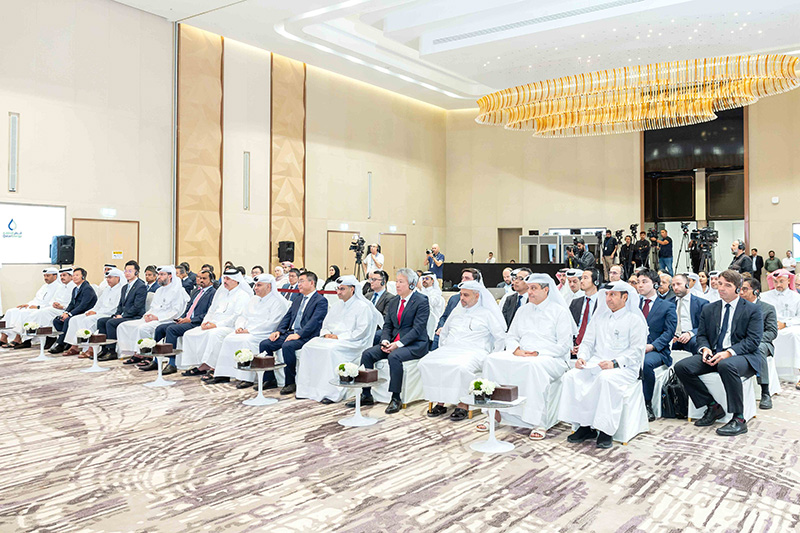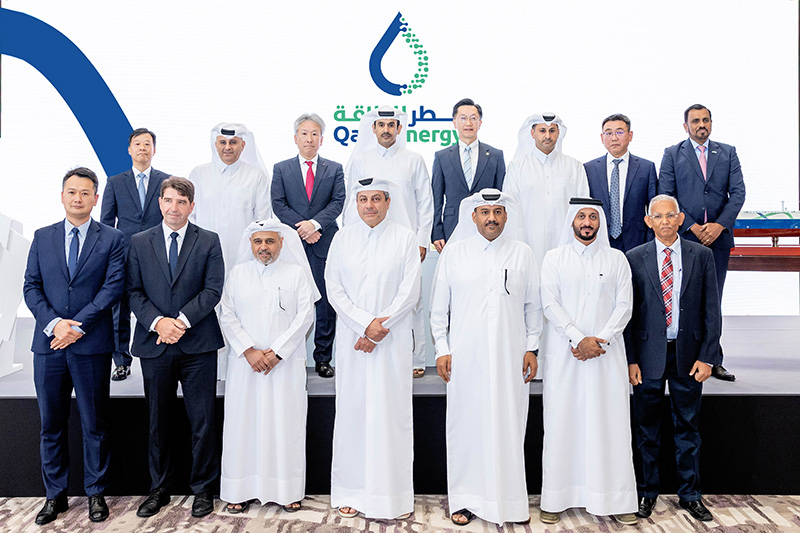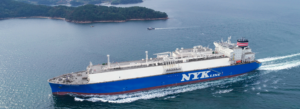
Doha’s QatarEnergy announced on Sunday that it sealed long-term time charter party (TCP) deals with four international shipowners for the operation of 19 new, ultra-modern conventional size LNG vessels as part of the second ship-owner tender under QatarEnergy’s historic LNG fleet expansion program.
In a ceremony at its Doha headquarters QatarEnergy signed contracts for the operation of six vessels by CMES LNG Carrier Investment, six vessels by Shandong Marine Energy (Singapore), and three vessels by MISC Berhad.
Those vessels are being constructed at Samsung Heavy Industries in South Korea, QatarEnergy said in a press release.
The remaining four vessels will be operated by a joint venture of Kawasaki Kisen Kaisha (K-Line) and Hyundai Glovis and are being built by South Korea’s Hanwha Ocean.
The agreements signed on Sunday bring the total number of ships QatarEnergy has signed TCPs to 104, the company said, 43 of which will be chartered by QatarEnergy’s affiliate QatarEnergy Trading.
The 19 conventional LNG vessels, announced on Sunday, have a capacity of 174,000 cubic meters each and will be equipped with the latest LNG shipping technologies, QatarEnergy added.
Saad Sherida Al-Kaabi, the Minister of State for energy affairs, the president and chief executive of QatarEnergy, said: “These ships will support our expanded LNG production capacity from the North Field in Qatar and Golden Pass in the U.S., while also meeting our long-term fleet replacement requirements.
“The careful shipowner selection process followed a detailed and rigorous global tender, signifying QatarEnergy’s commitment to expanding its fleet of modern LNG carriers in collaboration with world-class shipowners and in an open and transparent manner.”
Since 2022, QatarEnergy has signed a series of TCPs for the long-term charter and operation of 104 conventional LNG vessels, as part of its LNG fleet expansion program.
As it is claimed by the company, this initiative will support QatarEnergy’s expanding LNG production capacity from the North Field LNG expansion and Golden Pass LNG export projects, as well as meeting its long-term fleet replacement requirements.



